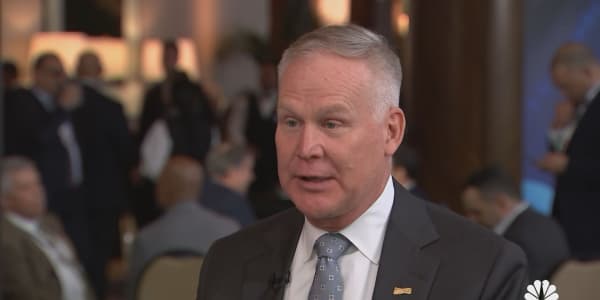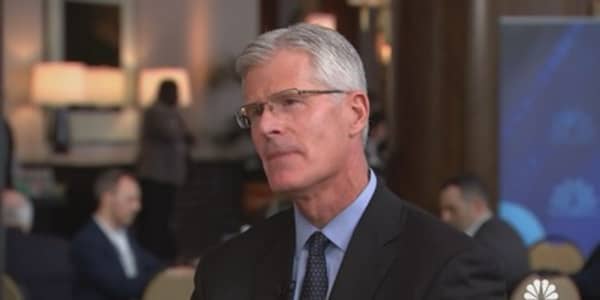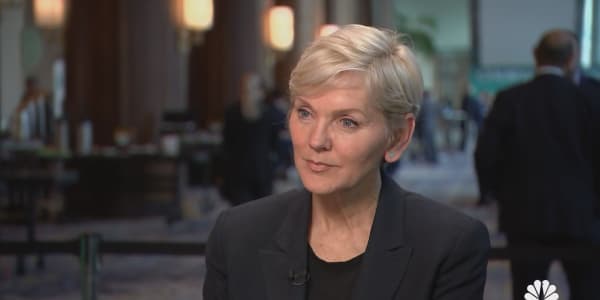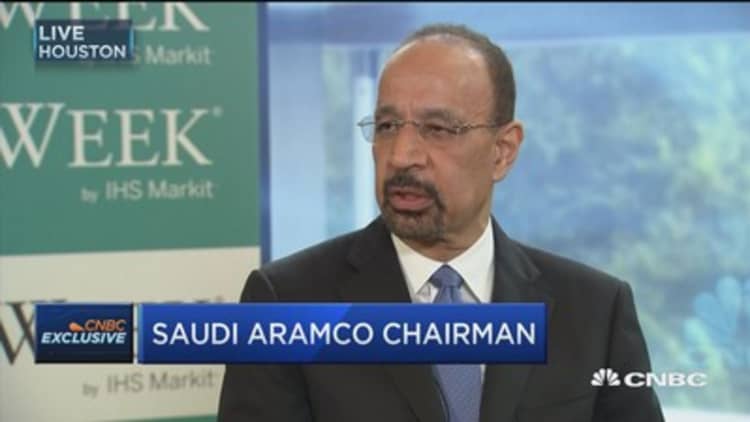
Saudi Arabia will only accept limited intervention by OPEC in oil markets, Khalid A. Al-Falih, the Saudi minister of energy, industry and mineral resources and chairman of Saudi Aramco, said Tuesday.
The Organization of the Petroleum Exporting Countries' historic agreement with non-member producers to cut output by 1.8 million barrels a day to reduce oversupply has brought the cartel into greater alignment than ever before, he said at the CERAWeek by IHS Markit conference in Houston.
However, Saudi Arabia will maintain its policy of managing production only for "a restricted period of time," such as to alleviate the impacts of financial crisis, economic recession or a temporary inventory glut, Falih said. OPEC will only act to accelerate rebalancing and will then let the free market do its work, he added.
"History has also demonstrated that intervention in response to structural shifts is largely ineffective, and I believe we in the organization have learned that lesson. That's why Saudi Arabia does not support OPEC intervening to alleviate the impacts of long-term structural imbalances," he said.
The oil market is in the middle of one of these structural shifts, with U.S. shale oil production having flooded the market and contributed to a more than two-year crude price downturn.
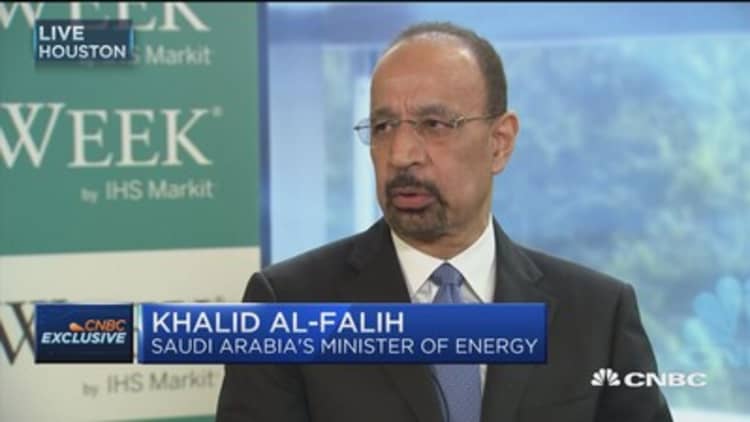
Saudi Arabia, OPEC's top oil exporter, did not push for oil production cuts during much of the first two years of the downturn. OPEC and other oil exporters agreed in November and December last year to cut back output.
Independent sources have put OPEC's compliance to the agreed-upon output cuts at 90 percent or greater. Falih said OPEC will decide later whether to extend the six-month output cuts by another six months later this year.
"In light of improving fundamentals, whose effect has been amplified by the OPEC and non-OPEC cooperation framework, I am optimistic about the global market outlook in the weeks and months ahead," he said.
"Though I would caution that my optimism should not tip investors into what I would call irrational exuberance or wishful thinking that OPEC or the kingdom will underwrite the investments of others at our own expense and long-term interests."



